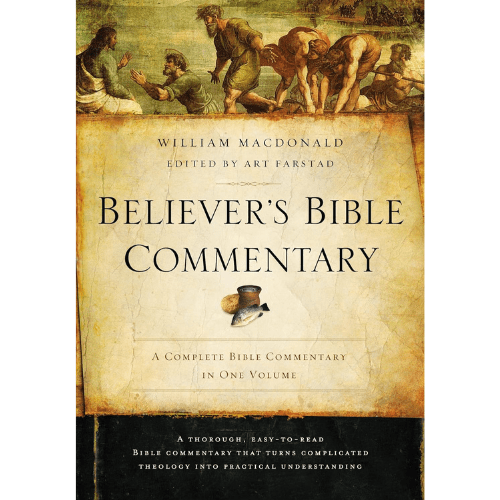What Is the Millennial Kingdom?
Have you ever wondered what the Bible means by the “millennial kingdom” and how it shapes our understanding of God’s plan? This intriguing concept, drawn from Revelation 20, speaks of a 1,000-year reign of Christ. But what does this reign look like, and why does it matter so much in eschatology—the study of end times?
The millennial kingdom has captivated Christians for centuries, offering a glimpse of Christ’s ultimate authority and the fulfillment of God’s promises. Some interpret it as a literal future event, while others see it as a symbolic or spiritual reality already unfolding. These varying perspectives stem from two main views: dispensationalism and partial preterism.
In this post, we’ll explore the millennial kingdom through both lenses. Together, we’ll uncover the biblical foundation of this fascinating doctrine, clarify its significance in eschatology, and compare the insights of these two interpretations. Whether you’re new to these terms or eager to learn more, we’ll guide you through the basics in a way that’s easy to understand and apply.
Let’s dive into the millennial kingdom and discover how this powerful concept reveals God’s grand design for His people and His creation.
The Millennial Kingdom in the Bible
The millennial kingdom is a central theme in biblical prophecy, offering a powerful vision of Christ’s reign and God’s ultimate plan. In Revelation 20:1-6, we read about a 1,000-year period where Christ rules with His saints, and Satan is bound to prevent him from deceiving the nations. This passage paints a picture of a time marked by peace, righteousness, and the fulfillment of God’s promises.
Isaiah 11 adds depth to this vision, describing a world where the wolf lives peacefully with the lamb, and justice flows like a mighty river. It portrays a ruler from the line of David who governs with wisdom, understanding, and unwavering justice. Similarly, Psalm 72 speaks of a king whose reign brings prosperity and compassion, ensuring justice for the poor and deliverance for the oppressed. Together, these scriptures create a beautiful mosaic of hope and restoration.
Throughout the Bible’s descriptions of the millennial kingdom, common themes emerge. Peace reigns, not just among nations, but throughout creation. Justice is administered perfectly, reflecting God’s character and love. Most importantly, Christ’s authority is fully established on earth, uniting all people under His righteous rule.
As we reflect on these passages, it’s clear that the millennial kingdom is more than just a future hope. It’s a promise of God’s faithfulness and a glimpse of the restoration He desires for the world. These vivid descriptions remind us to place our trust in Christ and anticipate the day when His kingdom is fully realized. This vision of peace, justice, and perfect rule inspires us to live faithfully, knowing that God’s plan will one day be fulfilled.
Dispensational View of the Millennial Kingdom
Dispensationalism is a theological framework that views history as divided into distinct periods, or dispensations, in God’s redemptive plan. In each dispensation, God interacts with humanity in specific ways, revealing His purposes over time. This perspective emphasizes a literal interpretation of Scripture, particularly concerning prophecy and end-times events.
The Millennial Kingdom in Dispensationalism
At the heart of dispensational theology is the belief in a literal 1,000-year reign of Christ on earth. According to this view, the millennial kingdom begins after Christ’s second coming, following a period of tribulation. During this time, Christ will physically return to rule, bringing peace, justice, and the fulfillment of God’s promises.
One of the central aspects of the dispensational view is the restoration of Israel. Dispensationalists believe that God’s promises to Israel, particularly those concerning land and blessing, will be fulfilled during the millennial kingdom. Israel plays a key role in this period, demonstrating God’s faithfulness to His covenant with His chosen people.
Another key feature is the pre-tribulation rapture. Dispensationalists teach that believers will be taken to heaven before the tribulation begins, sparing them from the period of judgment. After the tribulation, Christ will establish His reign, bringing about the conditions described in Revelation 20, Isaiah 11, and other prophetic passages.
Key Figures in Dispensationalism
John Nelson Darby, often called the father of dispensationalism, introduced this theological system in the 19th century. C.I. Scofield further popularized it through the Scofield Reference Bible, making it accessible to many believers. Today, dispensationalism continues to influence Christian thought through teachers like Charles Ryrie, Tim LaHaye, and others who emphasize the future fulfillment of biblical prophecy.
A Strong Focus on the Future
Dispensationalists place a significant emphasis on prophecy yet to be fulfilled. They see the millennial kingdom as a tangible demonstration of God’s promises, justice, and ultimate victory. For many, this perspective offers hope and assurance, pointing to the future when Christ’s rule will bring peace and restoration to the world.
Partial Preterist View of the Millennial Kingdom
Partial preterism is a theological perspective that interprets many biblical prophecies as having already been fulfilled, particularly in the first century. This view sees events such as the fall of Jerusalem in A.D. 70 as key fulfillments of Jesus’ prophetic words. However, partial preterists believe some prophecies, like the second coming of Christ, remain in the future.
The Millennial Kingdom in Partial Preterism
From a partial preterist perspective, the millennial kingdom is often understood as symbolic rather than literal. It represents Christ’s spiritual reign, which began with His ascension and continues today through His rule in heaven. This view emphasizes the already-but-not-yet nature of God’s kingdom, where Christ is reigning now, but the fullness of His kingdom is still to come.
Historical events, particularly the destruction of Jerusalem and the temple in A.D. 70, are seen as pivotal moments in God’s redemptive plan. Partial preterists view these events as fulfilling much of what Jesus prophesied in passages like Matthew 24. They argue that the fall of Jerusalem marked a decisive shift in salvation history, symbolizing the end of the old covenant and the full establishment of the new.
Rather than focusing on a future physical reign, partial preterists emphasize the spiritual fulfillment of the 1,000-year period mentioned in Revelation 20. They see this as a metaphor for Christ’s ongoing victory over sin and His current authority over the world. This interpretation highlights the transforming power of Christ’s reign in the lives of believers and in the church’s mission.
Key Proponents of Partial Preterism
Prominent theologians like R.C. Sproul, Kenneth Gentry, and others have articulated and defended the partial preterist view. They emphasize careful interpretation of biblical texts, historical context, and a focus on Christ’s completed work. While partial preterism differs significantly from other eschatological perspectives, it invites us to see the millennial kingdom as a present reality rooted in the power of the gospel.
A Spiritual Perspective
This view encourages us to live with confidence, knowing that Christ is already reigning and His promises are being fulfilled in and through us.
Comparing the Two Views
When comparing dispensational and partial preterist views, we find some significant common ground. Both perspectives affirm that the millennial kingdom is a period of Christ’s reign, demonstrating God’s power and faithfulness. At the heart of both views is Christ, who reigns as King and fulfills God’s ultimate plan for redemption. This shared emphasis on Christ’s central role reminds us of the unity we have as believers, even when we interpret the details differently.
Additionally, both views agree that the millennial kingdom reflects God’s promises to establish justice, peace, and righteousness. While they differ on how and when this takes place, they both celebrate the hope of Christ’s victory over sin and evil.
Key Differences in Understanding
Despite their shared foundation, dispensationalists and partial preterists diverge in significant ways. Dispensationalists interpret the millennial kingdom as a literal 1,000-year reign of Christ on earth, which begins after His second coming. This future-oriented view focuses on a physical fulfillment of biblical prophecy, including the restoration of Israel as a central feature. In Revelation 20, dispensationalists see a chronological sequence of events: Christ’s return, Satan’s binding, and the establishment of the kingdom.
Partial preterists, on the other hand, see the millennial kingdom as spiritual or symbolic. They believe Christ’s reign began with His ascension and continues today through His authority in heaven and the church’s work on earth. For partial preterists, Revelation 20 is not a literal timeline but a rich, symbolic description of Christ’s ongoing victory. The destruction of Jerusalem in A.D. 70, for example, is viewed as a key moment in the fulfillment of Jesus’ prophetic words.
Another major difference lies in the role of Israel. Dispensationalists emphasize the restoration of Israel and the fulfillment of God’s promises to the Jewish people. Partial preterists, however, believe the church fulfills these promises, representing a spiritual Israel that inherits God’s covenant blessings.
Theological and Practical Implications
These differing views carry meaningful theological and practical implications. Dispensationalists often focus on future prophecy, encouraging believers to anticipate Christ’s return and the establishment of His kingdom. This perspective fosters a sense of urgency in evangelism and a hopeful longing for the day when Christ physically reigns.
Partial preterists, however, emphasize the present reality of Christ’s reign and the church’s mission in advancing His kingdom. This view encourages believers to live as active participants in God’s redemptive work today, demonstrating His justice, love, and peace in their daily lives.
Interpreting Revelation 20 and Beyond
Revelation 20 serves as a key battleground for these interpretations. Dispensationalists see it as a roadmap to future events, while partial preterists view it as a symbolic portrayal of Christ’s triumph. For dispensationalists, the millennium represents a future hope; for partial preterists, it signifies the ongoing reality of Christ’s victory.
Ultimately, these perspectives invite us to dig deeper into God’s Word, reflect on His promises, and live faithfully in light of His kingdom, whether we see it as already here or yet to come.
Believer’s Bible Commentary
Make Bible study a part of your daily life with the thorough yet easy-to-read commentary that turns complicated theology into practical understanding.
Why Does It Matter?
Understanding different perspectives on the millennial kingdom helps us grow deeper in our faith and appreciate the richness of God’s Word. Eschatology, or the study of end times, can sometimes feel overwhelming, but it offers us a clearer view of God’s ultimate plan. By exploring interpretations like dispensationalism and partial preterism, we see how Christians have wrestled with Scripture to grasp the mysteries of Christ’s reign.
It’s important that we approach these differences with humility and respect. While we may hold strong convictions, our shared hope in Christ’s ultimate victory unites us. Both views remind us that Jesus reigns as King and will one day bring justice, peace, and restoration. Focusing on this common ground strengthens our fellowship and keeps our eyes on what truly matters—our relationship with Christ and our calling as His followers.
These perspectives also shape how we live and worship today. A dispensational view might inspire us to eagerly anticipate Christ’s return and share the gospel with urgency. A partial preterist perspective can encourage us to recognize Christ’s present reign and engage in acts of justice, mercy, and love. Both invite us to live faithfully, trusting that God’s promises will be fulfilled.
Ultimately, our study of the millennial kingdom isn’t just about understanding the future—it’s about living faithfully in the present. By exploring these views, we gain insight into God’s plan, deepen our trust in His sovereignty, and are inspired to worship Him wholeheartedly. Together, we look forward to the day when Christ’s reign will be fully revealed and His kingdom will have no end.
Final Thoughts: Reflecting on the Millennial Kingdom
As we reflect on the millennial kingdom, we see how Scripture reveals God’s incredible plan for Christ’s reign. The Bible gives us a glimpse of a kingdom filled with peace, justice, and righteousness. While dispensationalism interprets this as a future, literal event, partial preterism views it as a present, spiritual reality. Both perspectives highlight Christ as the centerpiece of God’s redemptive plan and remind us of His ultimate victory.
Understanding these interpretations not only deepens our faith but also inspires us to live with purpose and hope. By studying these views, we learn to appreciate the beauty and complexity of God’s Word while staying focused on our shared mission as followers of Christ.
We encourage you to dive deeper into the Scriptures and explore these topics further. Books like The Meaning of the Millennium edited by Robert Clouse or R.C. Sproul’s The Last Days According to Jesus can be great resources. Bible study guides on eschatology can also help clarify these ideas.
Ultimately, the millennial kingdom reminds us of God’s faithfulness and Christ’s reign, whether present or future. Let’s continue seeking His truth, trusting His promises, and living with hope in His coming glory.
Frequently Asked Questions (FAQ) About the Millennial Kingdom
1. What is the millennial kingdom, and where is it mentioned in the Bible? The millennial kingdom is a 1,000-year period of Christ’s reign described in Revelation 20:1-6. It represents a time of peace, justice, and righteousness when Christ rules either physically on earth (dispensational view) or spiritually through His current reign in heaven (partial preterist view).
2. How do dispensationalists and partial preterists interpret the millennial kingdom differently? Dispensationalists view the millennial kingdom as a literal future event following Christ’s second coming, emphasizing the restoration of Israel and Christ’s physical reign. Partial preterists see the kingdom as symbolic or spiritual, already inaugurated through Christ’s ascension and His ongoing reign in heaven.
3. Why is the millennial kingdom important in Christian eschatology? The millennial kingdom highlights God’s faithfulness, Christ’s victory over evil, and the fulfillment of biblical prophecy. It reminds us of God’s ultimate plan to restore creation and reign with justice and peace.
4. Does the Bible say the millennial kingdom will last exactly 1,000 years? Revelation 20 mentions a 1,000-year period, but interpretations vary. Dispensationalists take it literally, while partial preterists see it as symbolic of a long period.
5. How should studying the millennial kingdom affect my faith and daily life? Studying the millennial kingdom encourages us to trust God’s promises, live faithfully, and prepare our hearts for Christ’s ultimate reign, whether present or future.





